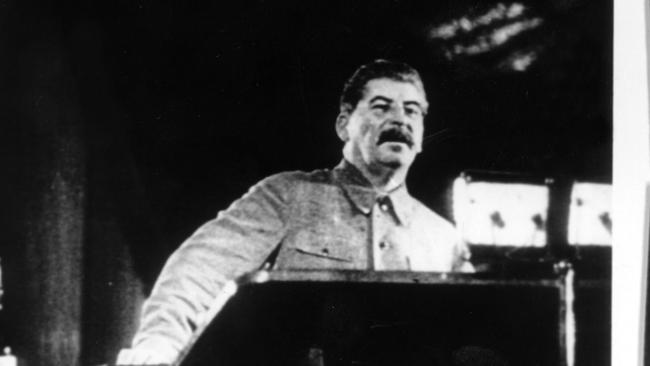A modern-day Stalin? How the dictators compare

If he stays in power until October 2028, when he will turn 76, he will overtake Leonid Brezhnev, the former Soviet leader, as the oldest occupant of the Kremlin. He will also overtake Joseph Stalin as Russia’s longest-serving leader if he secures a new term in 2030.
Under changes to the Russian constitution that were rushed through in 2020, Putin can serve two more terms, until 2036, when he will be 84.
The average life expectancy of a Russian man is just 64. Although Putin enjoys world-class medical care and is thought to be a near teetotaller who exercises regularly, his many enemies are openly hoping for his death.
The annual anniversary of Stalin’s sudden death at the age of 74 is celebrated by the Russian opposition with the slogan: “That one died; this one will too.”
A song by Pornofilmy, a Russian punk group, was played during opposition protests outside the Russian embassy in London on Sunday. It contains the lines: “Yesterday’s dictator alone in the morgue, now just a dead old man.”
In Ukraine, a popular Telegram channel is called “Has Putin croaked?”. It consists of a single entry every day that reads: “Unfortunately, Putin did not croak today.”
There have been frequent rumours that Putin is suffering from a fatal illness, but none has been confirmed. In 2022, William Burns, the CIA director, said: “As far as we can tell, he’s entirely too healthy.”
If Putin were to die in office, the presidency would pass temporarily to the prime minister. The post is currently held by Mikhail Mishustin, a former tax official.
Putin’s allies insist that his legacy will live on. “After Putin, there will be Putin. Everything that will happen after President Putin will happen according to the templates that he laid down,” Vyacheslav Volodin, the chairman of the Russian parliament, said in 2020.
However, as Putin’s allies and enemies are well aware, there are no guarantees of this. In 1956, three years after Stalin’s death, his successor, Nikita Khrushchev, gave a speech at a communist party congress criticising Stalin’s cult of personality and his purges.
The speech was followed by a program of “de-Stalinisation” in which monuments were dismantled, streets renamed and Stalin’s body removed from the mausoleum on Red Square where it had been placed alongside Vladimir Lenin’s embalmed corpse. Stalin’s reputation soared again after Putin came to power in 2000.
THE TIMES



After securing a new six-year term at rubber-stamp elections, Vladimir Putin is on track to become Russia’s oldest-ever serving leader.